People
People List
-
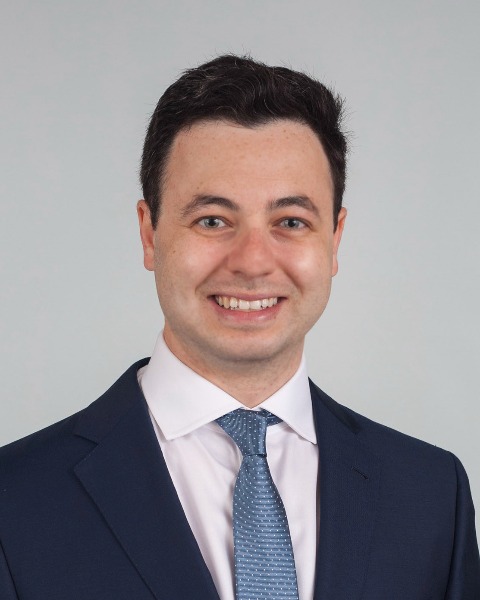 Yosef Berlyand, MD
Yosef Berlyand, MDWarren Alpert Medical School of Brown University
Yosef Berlyand, MD, is the Associate Director of Quality and Patient Safety and Associate Director of the Division of Emergency Department Operations and Quality Improvement at Brown Emergency Medicine. He is also an Assistant Professor of Emergency Medicine at The Alpert Medical School of Brown University.
Within SAEM, Dr. Berlyand serves as Chair of the Quality and Patient Safety Interest Group and a member of the ED Administration and Clinical Operations Committee. He has published research on patient experience, emergency department operations, home-based hospitalization, ED observation units, and improvements in sepsis care. Additionally, his work in NEJM Catalyst highlights the development and implementation of an innovative electronic pass-off system in the ED.
He earned his medical degree from Harvard Medical School and completed his emergency medicine residency at the Harvard-Affiliated Emergency Medicine Residency at Massachusetts General Hospital and Brigham and Women’s Hospital. -
 Michelle MJ Nassal, MD, PhD MJ Nassal, MD, PhD
Michelle MJ Nassal, MD, PhD MJ Nassal, MD, PhDOhio State University Hospital
Michelle Nassal, MD,PhD Assistant Professor of Emergency Medicine at The Ohio State University. My overarching career goal is to become a leading physician scientist in personalized resuscitation from out-of-hospital cardiac arrest. My previous research experience encompassed a PhD in Cardiac Physiology studying translational models of arrhythmogenesis during ischemia. I expanded my focus to clinical research through completing a research fellowship and initiating an MPH in biostatistics at OSU. I was fortunate to be awarded the SAEM Research Training Grant then NHLBI K08 to evaluate end tidal carbon dioxide capnography in cardiac arrest.
-
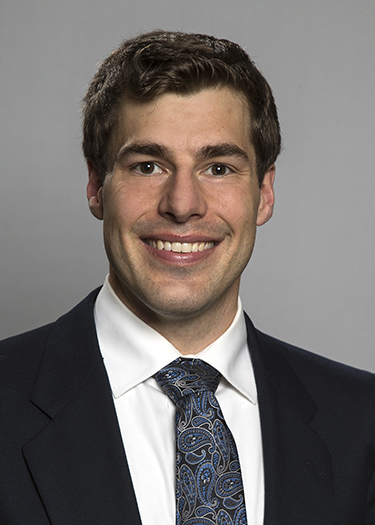 Drew Birrenkott, MD, DPhil
Drew Birrenkott, MD, DPhilEmergency Physician
Mass General Brigham
Drew Birrenkott, MD, DPhil, is an emergency physician and biomedical engineer. He is currently a fellow in clinical innovation and research translation in vascular emergencies at Mass General Brigham. He completed his doctorate in engineering science at Oxford University using signal processing and AI to estimate respiratory rate from cardiac waveforms. His doctoral work received international patents and has been licensed by start-up companies for use in medical devices. He completed medical school at Stanford University and residency at the Harvard Affiliated Emergency Medicine Residency (HAEMR) at Mass General Brigham. As a member of the Massachusetts General Hospital Center for Vascular Emergencies, he is currently working on novel applications using both AI and -omics to improve the acute diagnosis of pulmonary embolism (PE) including systems to improve PE triage risk and expedite diagnosis. He is a member of the Automated Registry of CardioVascular Emergencies (ARCVE), a multi-center consortium of hospital systems and venous thromboembolism researchers which has created one of the largest registries of patients evaluated for VTE in the emergency department.
-
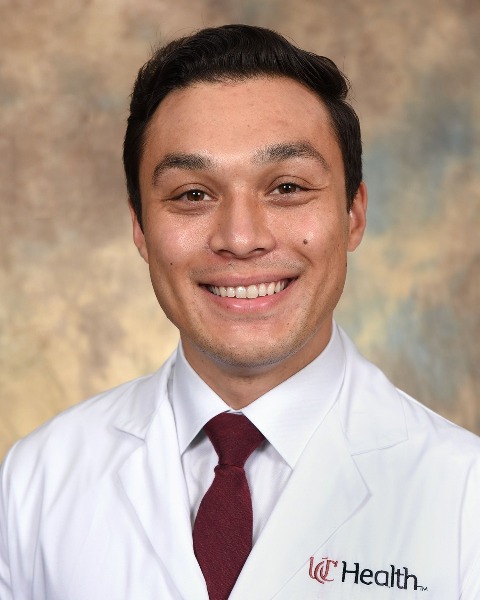 Arthur Broadstock, MD
Arthur Broadstock, MDUniversity of Cincinnati Medical Center
Arthur Broadstock is an Assistant Professor of Emergency Medicine at the University of Cincinnati Medical Center. His interests include ultrasound guided regional anesthesia, resuscitative transesophageal echocardiography, medical education and wilderness medicine.
-
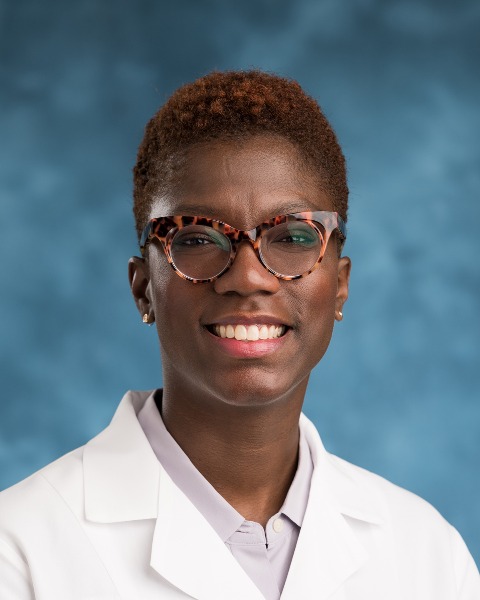 Adrianne Haggins, MD, MS
Adrianne Haggins, MD, MSUniversity of Michigan
Dr. Adrianne Haggins is an Associate Clinical Professor in the Department of Emergency Medicine at the University of Michigan Medical School. She completed medical school at Michigan State College of Human Medicine ('07) and residency training at the University of Chicago ('10). She is an alum of the Robert Wood Johnson Foundation Clinical Scholars Program ('10-'12) and the Medical Education Scholars Progam ('15-'16) both at the University of MIchigan. Her professional interests are related to inclusive mentorship practices to promote health care workforce diversity, informing design of curriculum to improve delivery of care to socially and/or economically vulnerable populations, as well as examining health disparities in access to care. She co-directs the Health Policy and Economics Path of Excellence and serves on competency and admissions committees in the Medical School.
-
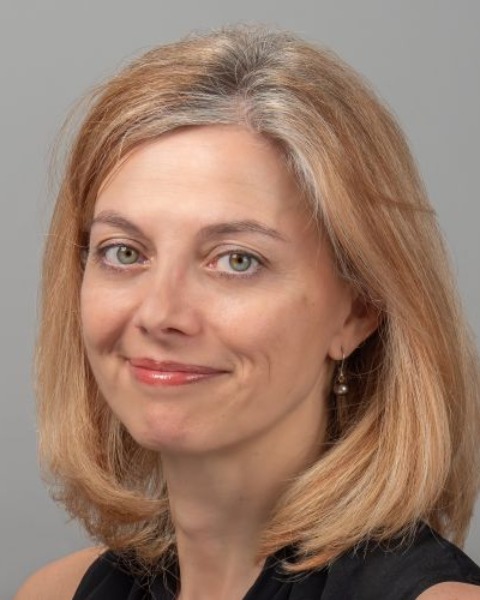 Maria E. Moreira, MD
Maria E. Moreira, MDDenver Health
Maria E. Moreira, MD, FACEP is the Medical Director of Continuing Education & Simulation at Denver Health & Hospital Authority in the Office of Education, Director of Professional Development & Wellbeing for the Denver Health Emergency Department, and a Professor of Emergency Medicine at the Univeristy of Colorado School of Medicine. Dr. Moreira received her medical degree from the University of Medicine & Dentistry of NJ - Robert Wood Johnson Medical School and completed her Emergency Medicine Residency at Denver Health & Hospital Authority. From 2010 to 2018, she served as Program Director of the Denver Health Residency in Emergency Medicine. She is an active member of several national Emergency Medicine organizations including ACEP (American College of Emergency Physicians), SAEM (Society of Academic Emergency Medicine), and CORD (Council of Residency Directors in Emergency Medicine), serving on multiple different committees. She served as President of CORD from 2019-2020. Additionally, she is the Section Editor for Adult Trauma for UpToDate, co-editor for Communication in Emergency Medicine and Emergency Medicine Secrets, and Editor-in-Chief of PEERcert+. She has received local, regional, and national teaching awards including the John Marx Education Award from the CO ACEP Chapter, the ACEP National Emergency Medicine Faculty Teaching Award, the Michael P. Wainscott Program Director Award, the Denver Health Medical Staff Outstanding Teacher Award, the Denver Health Residency in Emergency Medicine Jeffrey Druck Legacy Teaching Award, the 2024 Denver Health Residency in Emergency Medicine Outstanding Medical Student Educator Award, and was nominated in 2018 for the ACGME Parker J. Palmer Courage to Teach Award. She has authored multiple book chapters and peer-reviewed publications, lectures locally, regionally, and nationally on various clinical and educational topics, and has developed and implemented several curriculums. Areas of academic interest include curriculum development, procedure education, trauma care, communication, simulation, and leadership development.
-
Ryan Walsh, MD, FACEP
Vanderbilt University Medical Center
Dr. Walsh joined the faculty of Vanderbilt University in 2017 after completing eight years of active duty service in the United States Army Medical Corps. During that time Dr. Walsh completed two Middle East deployments, one as a Battalion Surgeon and one on a Damage Control Surgical Team. Dr. Walsh completed his residency at Madigan Army Medical Center in Tacoma, Washington. He then stayed on as an attending within the Department of Emergency Medicine serving in the roles of clerkship director, assistant program director, and research director. Dr. Walsh has received national recognition of his contributions to Emergency Medicine to include the Government Services chapter of the American College of Emergency Physicians Rising Star award in 2016 and the Society of Academic Emergency Medicine Simulation Academy Simulation Innovation Award in 2023. He has also received multiple local awards highlighting his teaching abilities to include the Madigan Army Medical Center Department of Emergency Medicine Active-Duty Faculty of the year award in 2017 and the Vanderbilt University Medical Center Department of Emergency Medicine Best Procedural Educator in 2022 and 2023.
After coming to Vanderbilt, Dr. Walsh became the Director of Procedural Simulation where he has helped to develop the procedure curriculum for the Emergency Medicine residency. He now is the Director of Procedural Education and Training utilizing his experience in procedural education to focus on both Faculty and Residents as part of the Faculty Education and Training Team. In addition to his educational pursuits, Dr. Walsh has also served as the principle investigator for a DOD sponsored project to utilize augmented reality to assist with patient management and procedural performance in the prolonged field care setting. He has also been a consultant on over $2 million worth of grants researching the development of virtual reality training for military trauma scenarios awarded by the Army Advanced Medical Technology Initiative as well as the Defense Medical Research and Development Program. Dr. Walsh has also partnered with other industry partners for medical device research. Outside the hospital he enjoys hiking, camping, cycling, and mountain biking. Dr. Walsh is married to Lindsey and has two young children. -
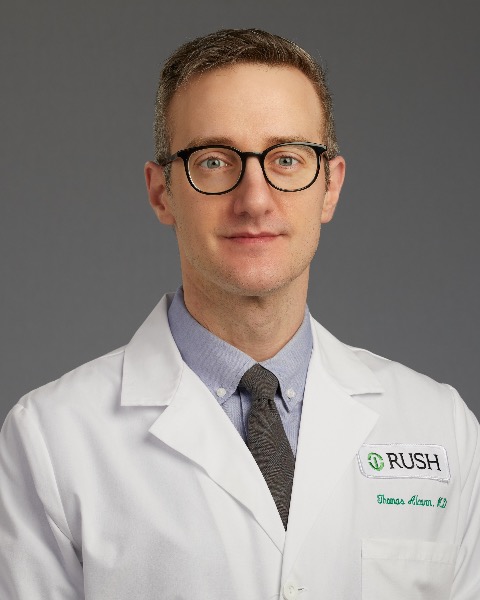 Thomas R. Alcorn, MD
Thomas R. Alcorn, MDRush Medical College
Thomas Alcorn is the Clerkship Director for Emergency Medicine at Rush Medical College (Rush University) in Chicago, IL. He also serves as the Emergency Airway Director, and is an Associate Professor, core faculty for the EM residency, and clinical faculty of emergency medicine at Rush University Medical Center. Prior to coming to Rush he completed a combined residency in Internal Medicine and Emergency Medicine at the University of Illinois Chicago, and currently his primary clinical practice is in Emergency Medicine. He has a special interest in airway and educational research. His airway interests include difficult airway management, airway simulation and training, and airway QI, and his educational interests include curriculum design and student advising.
-
Maulik Lathiya, MBBS
Maulik is a medical school graduate and research Fellow with keen interest in emergency medicine and EMS.
-
Erin Kane, MD, MHPE
Washington University in St. Louis
Erin Kane, MD, MHPE completed emergency medicine residency and EMS fellowship through Washington University in St. Louis. She completed a Master of Health Professions Education degree through the University of Missouri in Kansas City. She has held roles as medical director and instructor for EMS response agencies and training academies in the St. Louis area. She has led educational initiatives as both an Assistant Program Director for the EMS fellowship and emergency medicine residency. She has conducted and presented EMS research, primarily related to prehospital airway management. Nationally, she was elected as the Chair of the EMS Interest Group for SAEM. She serves at the workgroup lead for the National Association of EMS Physicians’ Education Committee project on developing workshops for best practices in medical control for the non-fellowship trained physician. Her areas of expertise include EMS medical control practices, prehospital airway management, culturally competent care, mass gathering and event medicine, and mass casualty response.
-
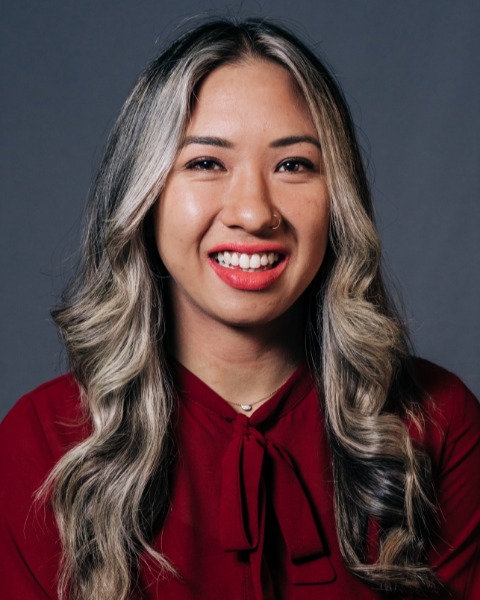 Allie R. Gubbels, MD
Allie R. Gubbels, MDStanford Health Care
Dr. Gubbels is a 4th year resident with a passion for wellness and digital health initiatives.
-
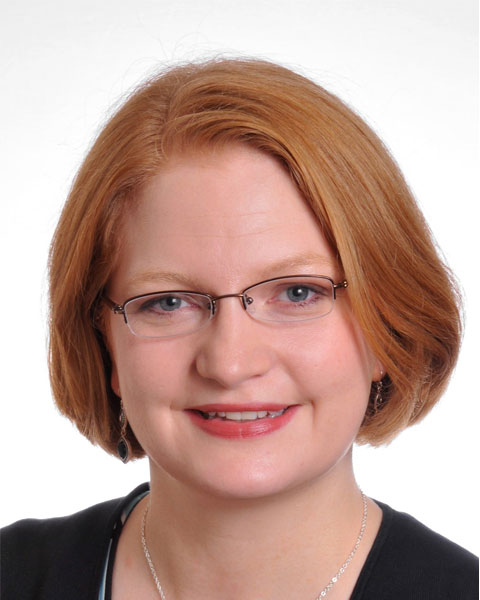 Jessie G. Nelson, MD
Jessie G. Nelson, MDRegions Hospital/HealthPartners/University of Minnesota
Dr. Jessie Nelson is a senior staff physician with the Emergency Medicine Department at Regions Hospital. She currently serves as Director of Emergency Medicine Education Research at Regions and is a Professor of Emergency Medicine at the University of Minnesota.
Dr. Nelson is fellowship-trained in medical education and simulation and focuses much of her effort on the growth and development of trainees. She serves as an Assessment and Coaching Expert at the University of Minnesota Medical School. She is active in the training of medical students and residents in the Emergency Department and directs procedural simulation efforts for the residency. Her passions are practical educational methodology and personal productivity in academia, and she's always looking for new ways to help learners learn and teachers teach. -
Brad D. Gordon, MD, MS
Regions Hospital
Dr. Gordon brings 25 years of experience in emergency medicine and clinical informatics, with a focus on optimizing ordering and documentation efficiency, as well as developing simple, cost-effective decision support tools. Through innovative applications of readily available technology, Dr. Gordon has transformed emergency practice, improving care quality and enhancing the wellness of physicians and physician assistants, all while delivering sustainable value to healthcare organizations.
-
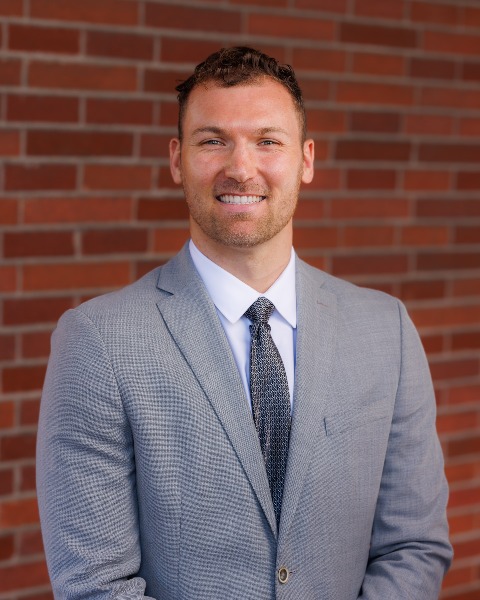 William Mehring, MD,MBA
William Mehring, MD,MBAStanford University
Dr. William Mehring, MD, MBA, is an Emergency Medicine Resident Physician at Stanford Health Care. He earned his Doctor of Medicine from the Keck School of Medicine of the University of Southern California and his Master of Business Administration from USC Marshall School of Business.
Dr. Mehring’s work sits at the intersection of clinical care, digital health, and innovation. He is particularly interested in the role of technology in transforming healthcare delivery and medical education, with ongoing work in digital health solutions, medical education innovation, and early-stage venture development. -
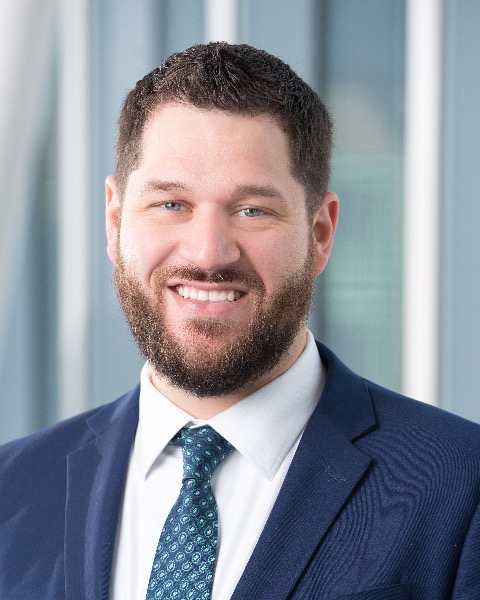 K. Robert Thompson, III, MD, MBA
K. Robert Thompson, III, MD, MBAUniversity of Cincinnati
Dr. K. Robert Thompson III is currently the Medical Director at the University of Cincinnati Medical Center (UCMC) Emergency Department. UCMC is a tertiary referral center and a Level 1 Trauma Center located in an urban setting, with an annual volume of 65,000 patients. In addition to his role as Medical Director, he serves as the UC Clinical Operations and Administration Fellowship Director. He completed both his Clinical Operations and Administration Fellowship and his Emergency Medicine Residency at the University of Cincinnati.
-
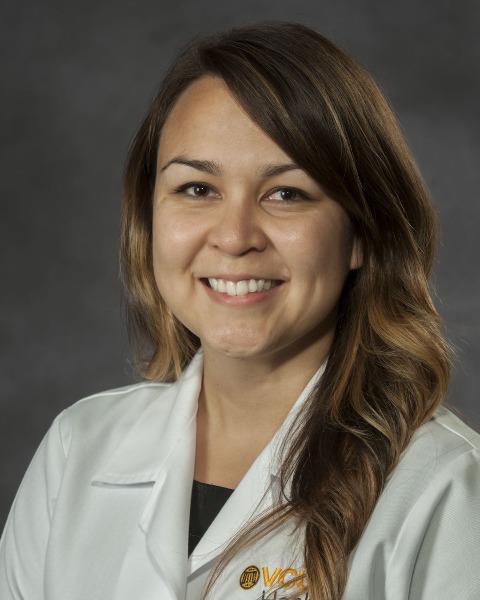 Grace A. Hickam Retter, MD, MEHP
Grace A. Hickam Retter, MD, MEHPVirginia Commonwealth University
Grace Hickam, MD completed her undergraduate medical training at the Virginia Commonwealth University School of Medicine followed by her residency training also at the Virginia Commonwealth University in Richmond, VA. She has Fellowship training in Medical Education as well as a Masters in Education for Health Professionals from John Hopkins University. Her interests are in gender equity in residency training, medical education innovation, simulation, quality and safety, and educational evaluation and feedback.
-
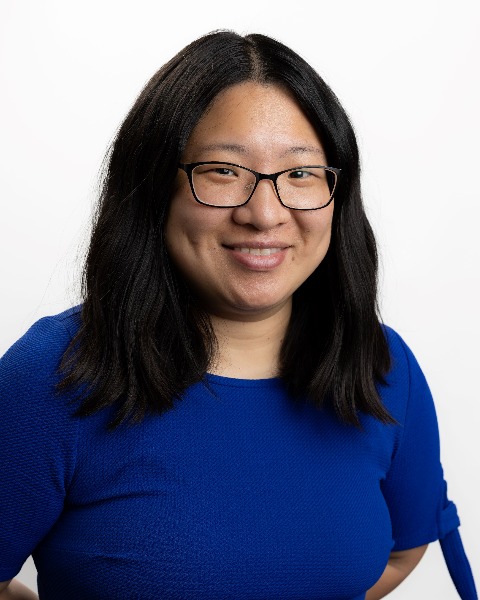 Diana Yan, MD, MEd
Diana Yan, MD, MEdIcahn School of Medicine
Diana Yan, MD MEd is an Assistant Professor of Emergency Medicine, Pediatrics and Medical Education at the Icahn School of Medicine and an attending physician in the Department of Emergency Medicine at Mount Sinai Morningside. Dr. Yan earned her medical degree from Case Western Reserve University and completed her pediatric residency and chief year at Rainbow Babies and Children's Hospital in Cleveland, OH. After her time in Cleveland, she moved to Chicago and was at the University of Chicago / Comer Children's Hospital as a Pediatric Emergency Medicine fellow and faculty member. She earned her Masters in Medical Education through the University of Cinnicinati. Her passion is in medical education and teaching the next generation of doctors.
-
Sanjay Mathew, MD
Baylor College of Medicine
I am a board-certified psychiatrist with extensive clinical/translational research experience in clinical trials and the neurobiology and treatment of mood/anxiety disorders and PTSD. I serve as Professor of Psychiatry and Vice Chair for Research and Director of the Mood & Anxiety Disorders Program at Baylor College of Medicine (BCM), Staff Psychiatrist at Michael E. Debakey VA Medical Center, and Senior Scientist at The Menninger Clinic. My research program focuses on experimental therapeutics and pathophysiology of these conditions, with grant support over the past 20 years from NIMH, Department of Veterans Affairs, PCORI, and industry. I have led or co-led numerous studies of pharmacotherapies many of which focused on glutamatergic systems, and have conducted multimodal biomarker (EEG, MRI, blood, cognitive) studies in the context of experimental medicine trials. I have experience in multicenter experimental medicine studies and integrated biomarker protocols.
-
Alan C. Swann, MD
Baylor College of Medicine
Alan Swann, MD, is professor in the Department of Psychiatry and Behavioral Sciences at the Baylor College of Medicine and Michael E. DeBakey Veterans Affairs Medical Center in Houston, Texas. Professor Swann is directly involved in teaching, research, and patient care. He graduated from the University of Texas, Southwestern Medical School in Dallas, Texas, in 1972 and completed a medical internship at Columbia-Presbyterian Medical Center in New York. He then completed a research fellowship at the National Institute of Neurological Disorders and Stroke and a psychiatry residency at Yale University School of Medicine. Professor Swann recently completed a term on the National Advisory Council on Alcoholism and Alcohol Abuse and has served on grant review boards for NIH and for the Veterans Administration, where he was chair of the Merit Review Board on Mental Health and Behavioral Sciences. He is a co-founder and former president of the International Society for Research on Impulsivity. His clinical interests include practical diagnosis and treatment of severe and common psychiatric disorders and their relationships to other medical conditions. He teaches residents and medical students at Baylor College of Medicine and the affiliated Michael E. DeBakey VA Medical Center. His research support has included the NIMH, NIAAA, and the American Heart Institute. Clinical research focuses on treatment of affective disorders, especially prediction of treatment response and development of more objective measures of disease severity, its underlying behavioral mechanisms, and its change during treatment. Preclinical human research concerns the neurobiology of behavior, such as impulsivity and motivation, which may be basic to bipolar disorder and its most severe complications, including suicidal behavior. Basic research focuses on pharmacological and developmental aspects of behavioral sensitization to stimulants and other potential models for recurrence in affective disorders. His work has resulted in over 300 peer reviewed publications, plus reviews and book chapters.
-
Jetaury I. Davis
Baylor College of Medicine
JeTaury (Jet) is a recent graduate of Northeastern University where he studied Cell and Molecular Biology and minored in Africana Studies. Jet's research experience dates back to high school where he interned in a cardiovascular lab at Baylor College of Medicine (BCM). During his undergraduate years, he engaged in computational chemistry research looking at the kinetics of biorthogonal reactions and worked in Investigative Toxicology at Alnylam Pharmaceuticals. Before applying to medical school, Jet has returned to BCM to participate in clinical research during his gap year under the guidance of Dr.Ynhi Thomas.
People List - Grid
-
 Yosef Berlyand, MD
Yosef Berlyand, MDWarren Alpert Medical School of Brown University
-
 Michelle MJ Nassal, MD, PhD MJ Nassal, MD, PhD
Michelle MJ Nassal, MD, PhD MJ Nassal, MD, PhDOhio State University Hospital
-

-
 Arthur Broadstock, MD
Arthur Broadstock, MDUniversity of Cincinnati Medical Center
-
 Adrianne Haggins, MD, MS
Adrianne Haggins, MD, MSUniversity of Michigan
-
 Maria E. Moreira, MD
Maria E. Moreira, MDDenver Health
-
Ryan Walsh, MD, FACEP
Vanderbilt University Medical Center
-
 Thomas R. Alcorn, MD
Thomas R. Alcorn, MDRush Medical College
-
Erin Kane, MD, MHPE
Washington University in St. Louis
-
 Allie R. Gubbels, MD
Allie R. Gubbels, MDStanford Health Care
-
 Jessie G. Nelson, MD
Jessie G. Nelson, MDRegions Hospital/HealthPartners/University of Minnesota
-
Brad D. Gordon, MD, MS
Regions Hospital
-
 William Mehring, MD,MBA
William Mehring, MD,MBAStanford University
-
 K. Robert Thompson, III, MD, MBA
K. Robert Thompson, III, MD, MBAUniversity of Cincinnati
-
 Grace A. Hickam Retter, MD, MEHP
Grace A. Hickam Retter, MD, MEHPVirginia Commonwealth University
-
 Diana Yan, MD, MEd
Diana Yan, MD, MEdIcahn School of Medicine
-
Sanjay Mathew, MD
Baylor College of Medicine
-
Alan C. Swann, MD
Baylor College of Medicine
-
Jetaury I. Davis
Baylor College of Medicine
